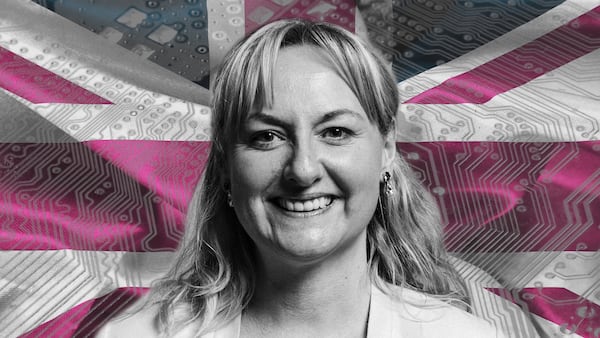- Rishi Sunak aspires to transform the UK into a hub for digital assets.
- Only eight out of 90 hopeful crypto firms have won a nod from the financial regulator.
- The 9% success rate has cast doubt on how viable the prime minister’s plans are.
Only eight out of 90 crypto firms that applied for UK registration in the last year succeeded.
The 9% success rate has reignited industry calls for the Financial Conduct Authority to overhaul its registration process.
“This low level of application approval signifies potential concern for the UK’s ambition to become a crypto hub,” Alan Vey, founder of web3 firm Aventus and a former Brevan Howard developer, told DL News.
NOW READ: London’s crypto hub status may slip to ‘not even number three’ after Brexit deal
The FCA figures, released earlier this week, also showed that of the 90 applications, three were refused, nine were rejected, and 70 were withdrawn.
“We have rejected submissions that didn’t include key components necessary for us to carry out an assessment, or the poor quality of key components meant the submission was invalid,” the FCA said on its website.
The success rate gets better over a longer time period, but not by much. The data dates back to January 2020, when the market watchdog became the anti-money laundering and counter-terrorist financing supervisor of UK crypto asset firms.
In that period, 319 firms have applied to be registered, with 43 succeeding. That win rate is about 14%.
“Despite the guidance and engagement we provide to support firms, most of the applications we receive continue to be poor,” a spokesperson for the FCA told DL News.
“Those applying must be able to show us they meet minimum standards, which are in place to guard against the financial system being used to finance crime.”
UK crypto dreams
The FCA has previously faced criticism for its crypto registration process.
In June, the All Party Parliamentary Group for Crypto and Digital Assets published a report noting that while “the government has said the UK is open for business for cryptocurrency and digital asset companies,” the industry told it that a “burdensome and lengthy” registration process has resulted “in many businesses ultimately choosing to invest outside of the UK.
“Many have seen lengthy delays or in many cases their applications rejected without clear explanations as to the reasons why,” the cross-party parliamentary group wrote.
NOW READ: UK as major crypto hub? ‘I don’t see that happening,’ Coinpass CEO says
Jeff Hancock, CEO and founder of crypto exchange Coinpass, has been a vocal critic of the FCA’s registration process.
He told DL News that the process involved providing information that went beyond the scope of anti-money laundering and know-your-customer requirements.
This expanded information includes a business plan, financial forecasts, future revenue compression expectations, and explanations of its growth metrics from previous years.
When asked about how the latest figures from the FCA made him feel, he replied: “Low.”
Reasons ‘easy to determine’
Daniel Meyer, financial services lawyer at national law firm Freeths, told DL News “the reasons for the FCA’s strict approach are easy to determine.”
The industry just hasn’t convinced the agency of its AML chops.
“The FCA will be very cautious to not become the regulator that lets an unscrupulous business slip through the net. The regulator is still scarred by the strong criticism it received in relation to previous scandals,” Meyer said, pointing at the 2019 collapse of the £10 billion Woodford Equity Income Fund.
NOW READ: UK crypto projects secured $232m in Q1 as country offers ‘fit-for-purpose regime’
Still, he said crypto firms’ “uphill struggle” to get registered meant Sunak’s pledge to turn the UK into a global crypto hub “seems to have failed to get out of the starting blocks.”
‘A global hub for crypto-asset technology’
In April 2022, then-finance minister Sunak said it was his “ambition to make the UK a global hub for crypto-asset technology.”
The crypto industry was thrilled when he moved into 10 Downing Street at the end of last year, hoping the Goldman Sachs alumni and Silicon Valley evangelist would live up to his word.
They have reason to be cautious. While the Sunak government has fed several laws and consultations through the Westminster pipeline to better regulate the industry, it’s also faced setbacks.
The UK Treasury Committee called in May for crypto to be regulated like gambling, only to unceremoniously drop that demand a few weeks later.
NOW READ: UK lawmakers drop crypto-is-gambling idea and welcome a16z’s riches
Nevertheless, the FCA must collaborate more closely with the industry to “position themselves as the front-runner in regulatory balance when it comes to crypto and blockchain — crucial in the race to becoming the world’s global blockchain hub,” Vey said.
Do you have a tip about the FCA, the UK’s crypto ambitions or another story? Reach out to the author at eric@dlnews.com.
This story has been updated to include the comments from the FCA.





